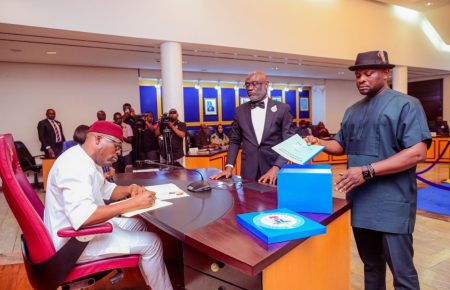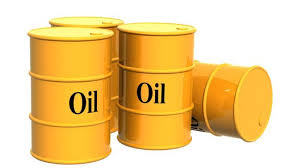 Oritsegbubemi Omatseyin
Oritsegbubemi Omatseyin
Lagos — The Federal Government, through the Nigerian Midstream and Downstream Petroleum Regulatory Authority, NMDPRA, has issued licenses for nine modular refineries. Farouk Ahmed, the Chief Executive of the NMDPRA, disclosed this during the 2024 Oil Trading & Logistics Africa Downstream Energy Week in Lagos.
He explained that these licenses were issued under the administration of President Bola Tinubu over the past year. Ahmed noted that Nigeria’s refining capacity has been increasing, particularly with the new Dangote refinery coming online.
He said the NMDPRA has granted nine licenses to establish modular refineries, seven Licenses to construct modular refineries and four licenses to operate modular refineries, indicating a strong push toward increased domestic refining capacity.
He stated: “Over the course of the last year, the NMDPRA has revised and consolidated its regulations through strategic industry stakeholder engagements with a view to streamlining the regulatory framework for ease of doing business and compliance. This is complemented by the issuance of relevant guidelines on automation for processes to strengthen regulatory clarity and enhance compliance. Our refinery sector has been expanding rapidly with the issuance of nine licences to establish, seven licences to construct and four licences to operate modular refineries.”
Ahmed credited President Tinubu’s leadership for improving the investment landscape within Nigeria’s industrial sector through innovative policies introduced over the past 18months. He noted that these bold reforms have turned the sector into a profitable and attractive destination for oil and gas investments.
He added that under the current administration and the ministers in charge of the oil and gas sectors, Nigeria is poised to actualise the target of 3 million barrels per day of crude oil production and the projected 10 billion standard cubic feet of gas per day for domestic utilisation.
He said Nigeria will also boost its proposed domestic refining capacity leading to Nigeria becoming a net exporter of petroleum products.
He stated: “Indeed, the Nigerian petroleum industry collector has all the complements of enabling structures to facilitate its growth and success. The NMDPRA is fully committed to supporting all the reform initiatives of Mr President and the mainstream and downstream subsector through enhanced regulatory processes, including efficient issuance of licences, permits and provisions.”
Ahmed also discussed the development of the West African Gas Pipeline, WAGP, project extending to Morocco, which aims to facilitate the movement of natural gas across West Africa. He suggested a potential partnership with East and Southern African regional regulators to establish a pan-African Energy Regulators Association, which would streamline regulations across the continent.
He emphasised the promotion of Compressed Natural Gas, CNG, as an alternative to Premium Motor Spirit, PMS, and Automotive Gas Oil, AGO, with plans to expand CNG infrastructure under the Pi-CNG, the Decade of Gas Programme and the MDGIF.
“Our goal is to accelerate CNG infrastructure expansion at most retail outlets, supporting the growing number of CNG vehicles nationwide,” he said.
The regulator said the Nigerian petrol market is indeed undergoing major transformations for liberalisation.
“Our inspired target is to achieve a fully liberalised and mature market for all petroleum products and natural gas, where the market fundamentals lead to robust price discovery and attractive investment opportunities. The Federal Government is deepening the liberalisation of the energy market through robust policies and provision of generous incentives to increase investment by both domestic and international companies,” he added.



